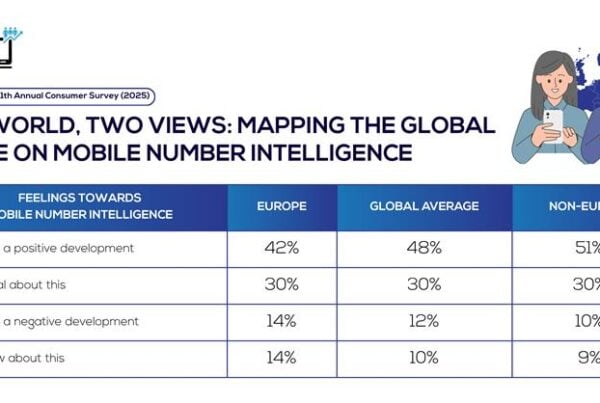MEF’s Riccardo Amati takes a look at Iliad’s decision to abandon merger talks with Telecom Italia, choosing organic growth over consolidation. The move highlights Iliad’s strong momentum in Italy and France, while exposing TIM’s vulnerabilities in a crowded four-player market. Europe’s broader challenge remains: balancing competitive fragmentation with the need for scale to fund 5G and digital infrastructure.
Backed by strong earnings, Iliad walks away from merger talks with Tim, doubling down on organic growth in Italy and domestic expansion in France.
The collapse of merger talks between Iliad SA and Telecom Italia SpA (TIM) is more than just another abandoned deal in Europe’s crowded telecom sector. It highlights the limits of consolidation in a market crying out for rationalization and leaves both companies—and the wider industry—facing strategic crossroads. For Iliad, the French challenger brand turned European growth story, the decision reflects confidence in its ability to expand organically. For TIM, it underscores its continued vulnerability in a four-player market that punishes incumbents. And for Europe, where former European Central Bank president Mario Draghi has urged a more concentrated telecoms industry to support investment in 5G and digital infrastructure, it is a reminder that political and regulatory realities still weigh heavily on economic logic.
Four’s a Crowd
“We didn’t have any discussions with Telecom Italia since the beginning of April, and these will not come back,” Iliad Chief Executive Officer Thomas Reynaud said on the sidelines of the company’s half-year earnings presentation at the end of August. “Consolidation prospects are now behind us and the central hypothesis is a four-operator market”. The immediate consequences were stark. TIM shares slumped nearly 9%. Investors had been clinging to the prospect of a merger to shore up the Italian incumbent’s finances and relieve price competition. Instead, Italy remains one of the most fragmented telecom markets in the developed world, with four network operators—TIM, Vodafone-Fastweb, WindTre and Iliad—locked in a destructive price war. Without consolidation, analysts warn, profitability and investment capacity will continue to lag. For Iliad, by contrast, the decision underscores the strength of its disruptive model, which is gaining ground quarter after quarter, making the French group confident it can win without scale-enhancing deals in Italy.
Ultimately, Iliad’s decision to walk away from TIM underscores a paradox. Europe’s telecom industry may need consolidation to sustain investment and profitability, but the companies strong enough to drive deals—like Iliad—may not feel compelled to pursue them unless the terms are overwhelmingly favorable. “
Compete Abroad, Consolidate Home, Grow Pocket- Voilà
Reynaud’s statement, blunt and definitive, reflects Iliad’s strategic pivot. While once eager to test the waters of in-market deals, Iliad is now turning inward, focusing on domestic expansion in France, where rivals like Altice’s debt-burdened SFR could present tempting opportunities. In Italy, Iliad is content to keep growing on its own.
That confidence is rooted in performance. In the second quarter, Iliad Italia once again led the market in customer additions, gaining 287,000 subscribers and extending its run as net-add leader to 29 straight quarters. The Italian business now counts 12.5 million mobile subscribers, equivalent to a 15% market share, and it is gradually moving toward profitability. In the first half of 2025, Iliad Italia’s revenue rose more than 9% year-on-year while its operating loss was nearly halved year on year, to €53 million. Group-wide, Iliad reported revenue growth of 3.8% to just over €5 billion, with Earnings Before Interest, Taxes, Depreciation, Amortization after Leases (EBITDAaL) up more than 10% to €2.05 billion and free cash flow rising 20% to €1.2 billion. Credit rating agencies recently rewarded the group with an upgrade to a positive outlook, underscoring the balance sheet strength that allows Iliad to dictate terms in M&A rather than chase them.
Momentum vs. Burden
Analysts see the results as confirmation that Iliad’s model of low-cost simplicity, high customer satisfaction and operational discipline continues to deliver, even in mature and competitive markets. Barclays noted that Italian operators are generally failing to earn their cost of capital, with industry returns at just over 1%, making Iliad’s progress all the more striking. As Reynaud emphasized,“Our first-half results demonstrate how strong and unique our business model is. In a mature, ultra-competitive market, we’re the only European telco that’s seeing such robust growth momentum.” The figures tell the story: Italy is no longer just a battleground, it is turning into a pillar of Iliad’s growth.
The contrast with TIM could not be sharper. Once Italy’s national champion, Telecom Italia has spent years shedding assets to cut debt, including the sale of its landline network to KKR last year. The aborted Iliad talks had been seen as a chance to stabilize its mobile operations and build scale in a market where prices have been under relentless pressure since Iliad’s entry in 2018. TIM now faces the same four-player squeeze that has driven down average revenue per user across the sector, without the prospect of relief from a merger. Questions about TIM’s ability to generate sustainable returns are once again rising.
Beyond Telecom, With Confidence
Iliad’s outlook is shaped by confidence in its ability to continue expanding both in Italy and across its footprint. While France remains its home market, where Iliad could eventually pursue acquisitions to gain scale, Italy is proving that organic growth is profitable there, provided it is backed by cost control and customer focus. In Poland, Iliad’s Play business is consolidating its fiber footprint and expanding broadband. In France, new fixed and mobile offerings are keeping subscribers engaged even in a saturated market. Group-wide, Iliad is also betting on infrastructure diversification—cloud, artificial intelligence and data centers—that could provide future revenue streams beyond traditional telecoms. Reynaud has been clear that consolidation is not an imperative: “In Italy, consolidation makes sense — but for Iliad it’s an opportunity, not a necessity,” he said earlier this year.
The Consolidation Challenge: Mobile Takeaways
For the broader industry, though, the question of whether consolidation is inevitable remains. The TIM-Iliad episode shows the limits of deal-making in markets where politics, regulation and national sensitivities loom large. Italy’s government holds special powers over strategic companies like TIM, and any cross-border or in-market deal must clear regulatory hurdles designed to preserve competition. Even where economics argue for fewer players, the politics often pull in the opposite direction. That tension is at the heart of Draghi’s call for a more consolidated European telecoms industry: without scale, operators risk falling behind in the race to roll out 5G, fiber, and cloud infrastructure.
Comparisons abroad suggest different models are possible. In the UK, regulatory approval of Vodafone’s merger with Three came with strict conditions to safeguard investment and competition. In the US, the T-Mobile and Sprint merger reshaped the market into three national carriers with the financial strength to invest in 5G, albeit at the cost of higher regulatory scrutiny.
In Europe, however, fragmentation persists: four operators remain the norm in many countries, making price competition fierce but leaving returns thin. The Italian case shows how difficult it is to overcome this equilibrium.
Ultimately, Iliad’s decision to walk away from TIM underscores a paradox. Europe’s telecom industry may need consolidation to sustain investment and profitability, but the companies strong enough to drive deals—like Iliad—may not feel compelled to pursue them unless the terms are overwhelmingly favorable. For TIM and others, that leaves a harsh reality: survival in a fragmented market will require painful restructuring, disciplined investment, and perhaps unconventional alliances. For Europe’s digital ambitions, consolidation may not be inevitable — but without it, catching up and compete on a global scale will remain a marathon, not a sprint.
MEF Podcasts
For more discussion, interviews and insights subscribe to our three regular podcast channels
Listen Now…









